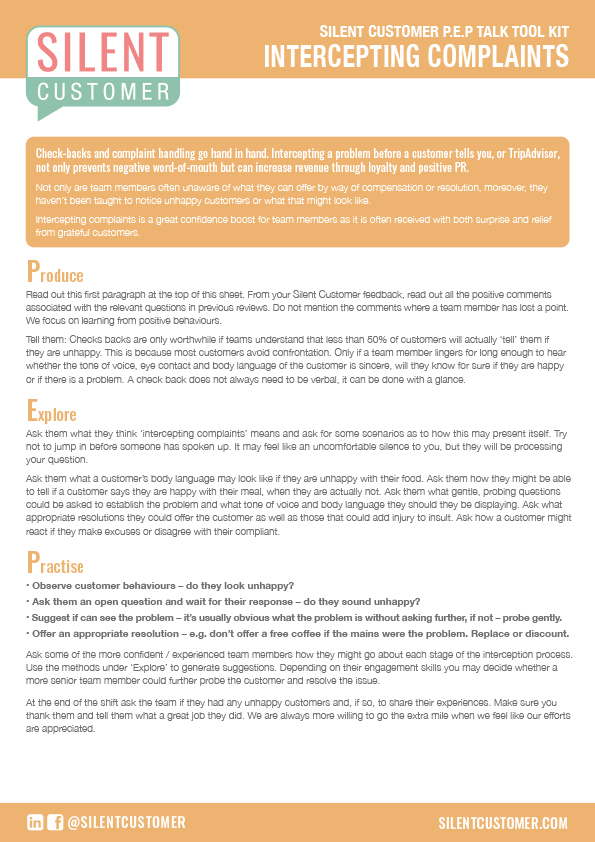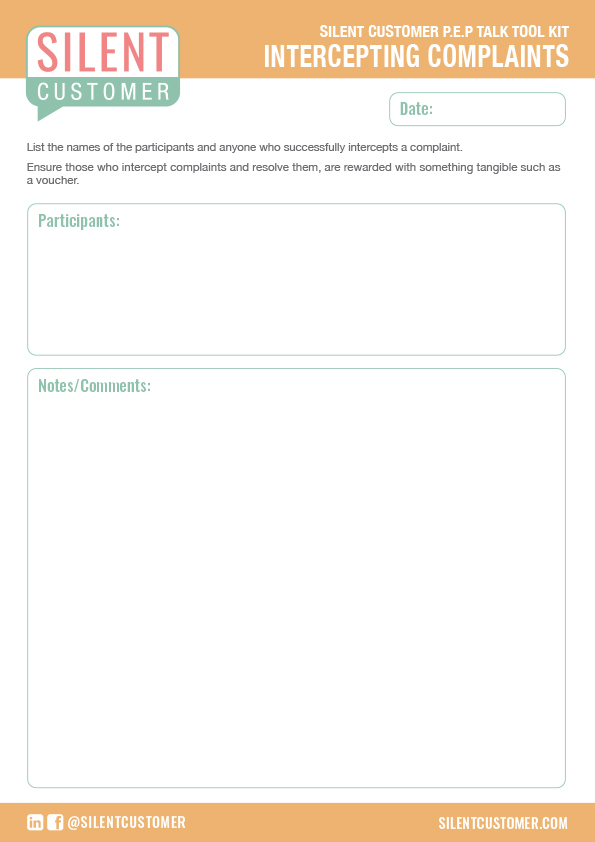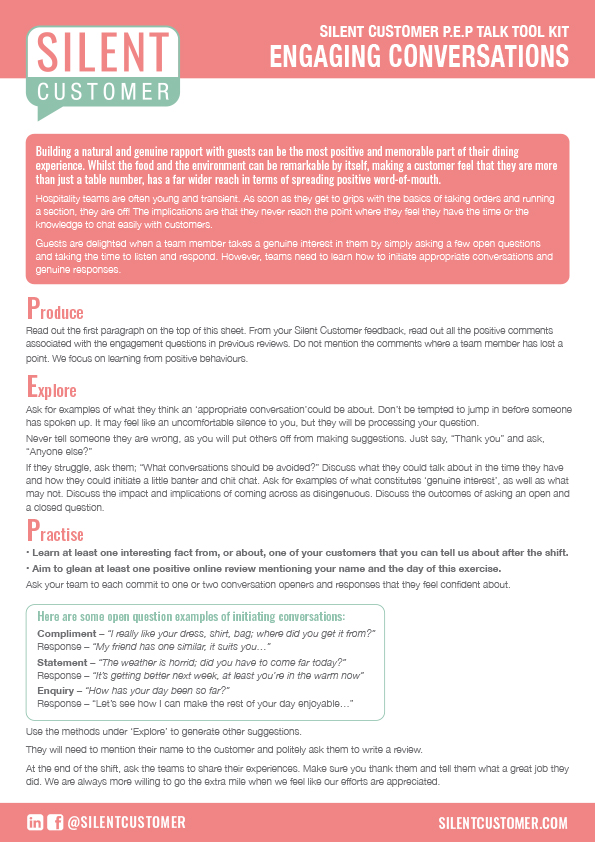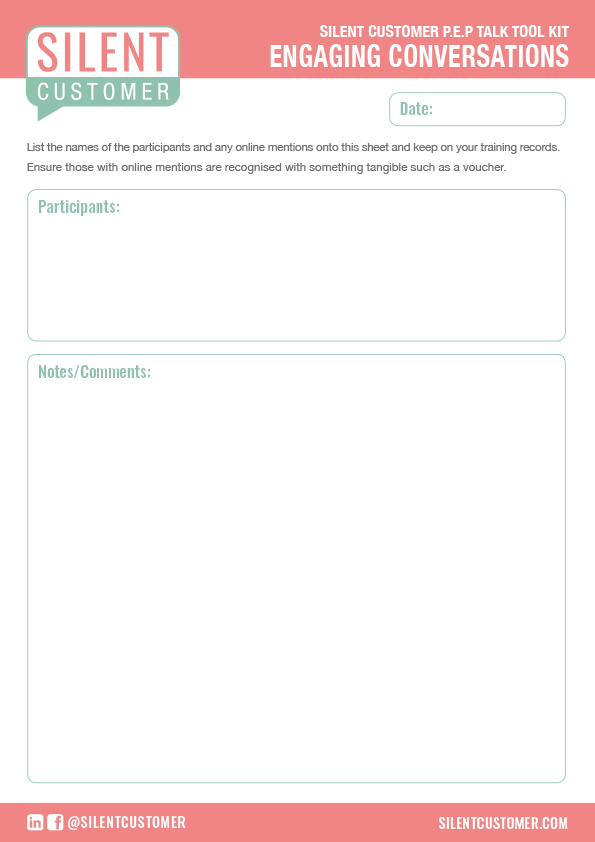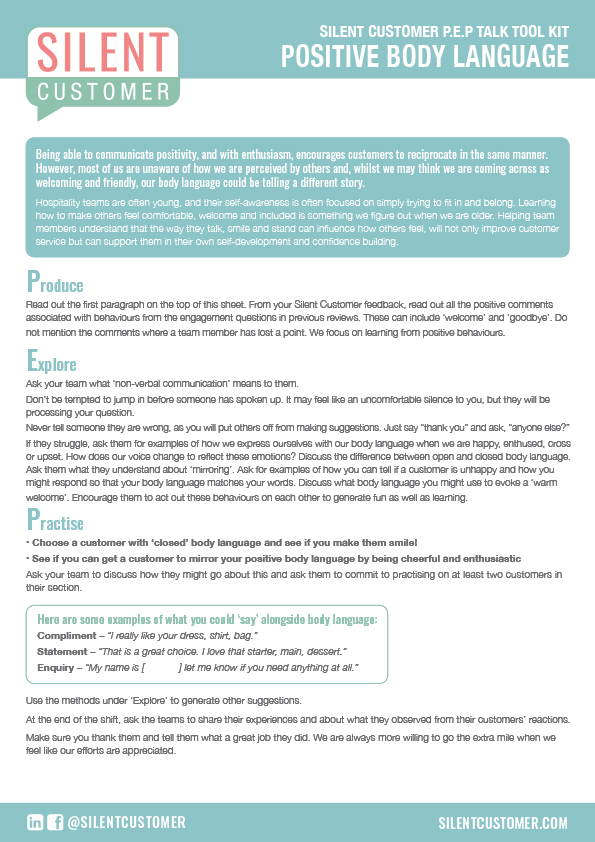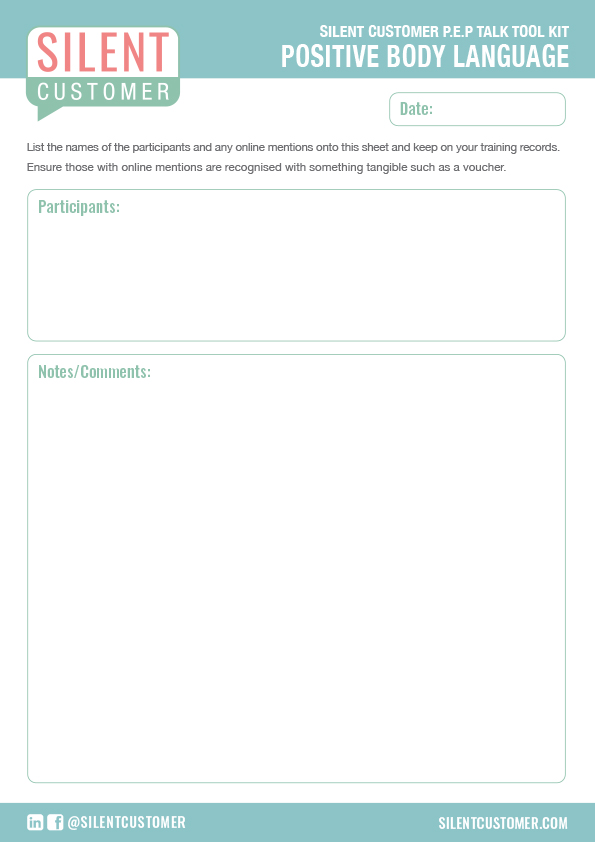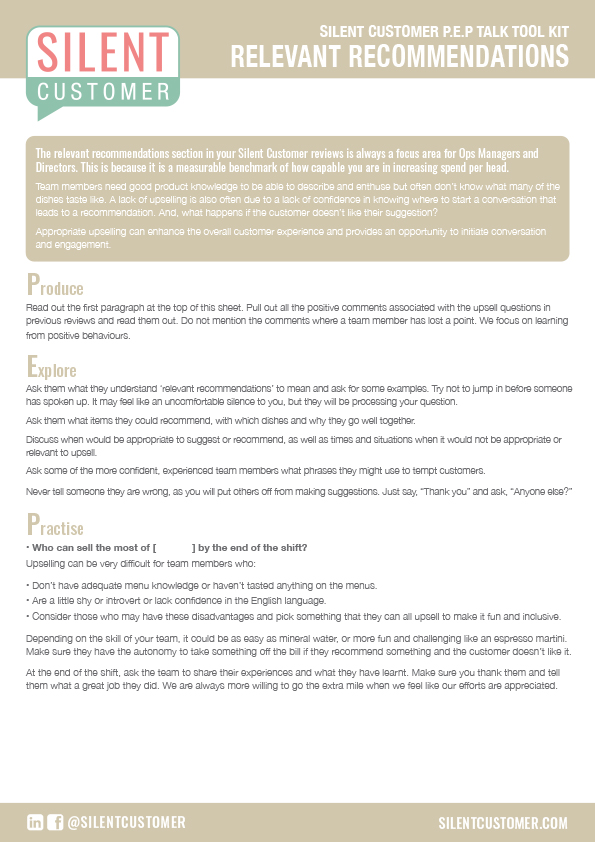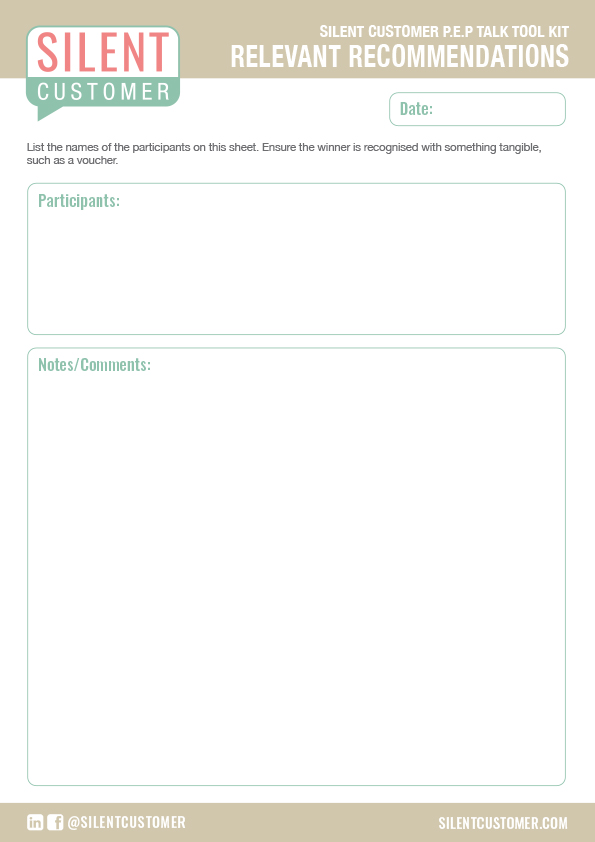Clients often ask if they can write their own mystery shopping surveys. We always encourage client input (after all, you know your businesses the best), but survey composition is a careful balance.
The structure of a question presupposes the answer. In other words, the way you ask a question will determine the value of the output and the learning potential.
Here at the Silent Customer, our team has many years of understanding shopper behaviour as well as hospitality employee behaviours, and we know which questions have useful output, which don’t and why.
We are focused on analysing behaviours – the behaviours of hospitality teams and how they impact the business. Our questions reflect this depth of understanding.
Here’s an example:
Were you given a checkback?
This is a question seen on most restaurant surveys, but the way it is written is very basic.
If the answer is ‘YES’, what does that tell you aside from the fact that the team member ticked that procedure off their ‘to-do’ list?
If a checkback is not asked as an open question with genuine interest, then it’s worse than not asking at all. Most customers are guarded in giving honest feedback since confrontation is something most of us go out of our way to avoid, and customers will not engage in meaningful feedback unless a question is genuine.
Expanding the question enables shoppers to expand on the impact for a ‘yes’ or a ‘no’ answer. We would therefore encourage a more detailed narrative:
Were you asked, at some point during or after your meal, how your food was? Was this asked in a way where you felt they were genuinely interested in your feedback (i.e. not asking merely by way of duty)?
Here’s another example:
Was your server engaging?
This answer could also be ‘yes’ or ‘no’, depending on what the shopper translates as ‘engaging’.
Being specific in the way that we phrase questions means we can set benchmarks and expectations. Adding supportive comments for the shopper to further justify their answer, supports the team member to understand exactly what it is they need to change or do more of.
Was your server upbeat and able to engage with you on a level appropriate to the business of the venue and to your engagement with them? For example, if it was really busy did they give you a genuine smile and joke about the level of trade, or were they really too busy for a quick chat?
‘Yes’ or ‘no’ questions are helpful to give a snapshot overview of a business, but we encourage supplementary narrative to provide teams with qualitative feedback that they can really engage with.
Does your mystery shopping company deliver value in its questions?

